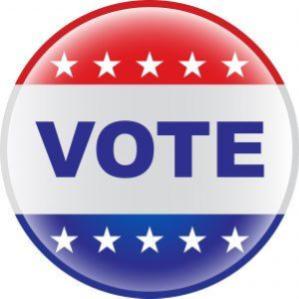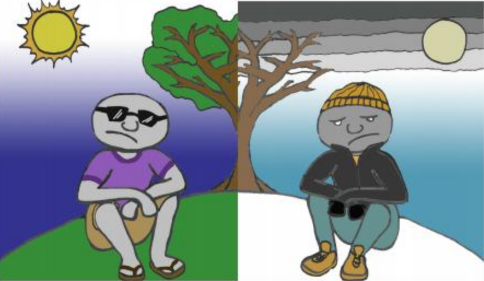The controversy of Dr. Paul Ewell’s Nov. 5 Facebook post shook the Marlin community the past few weeks. With the post erupting into the scope of national and international news, the gravity of the situation and the influx of backlash seemed inevitable. However, this issue did not just bring criticism against Ewell, but the Virginia Wesleyan University administration as well. As comments flooded in–over the phone, through interviews, in social media posts and by direct message–a theme took shape: there is a disconnect felt between administration and the broader Marlin community.
Alluding to Ewell’s comments, a Nov. 6 post from the institution reads, “The University is aware of a recent comment made on social media by a member of the campus community. These views and opinions are expressly the individual’s own.”
Backlash to this commentary stemmed from what was perceived as another University statement unwilling to directly address the issue at hand nor take a stance.
“At the very minimum, the school should have disavowed his comments, publicly and explicitly stating that Dr. Ewell’s comments do not represent the values of the school,” said senior Asha Richards in an open letter to VWU President Scott Miller and administration, suggesting that the language of the response was not a strong enough condemnation.
“Not satisfactory whatsoever,” senior Justin Robins said of the University’s statement.
Senior Saige Smith echoed this sentiment. “They didn’t really do anything. They just didn’t really–it wasn’t even an apology…. like they were trying to save themselves and distance from him, basically.”
Miller stood by the institution’s initial statement, saying that it “was a sufficient response at that time.” While the post circulated amongst the Marlin community, it had not yet begun to garner broader attention regionally or nationally.
Miller emphasized that for all the discourse taking place in the community, key members of the institution had begun conversations privately, following proper policy and legal procedure.
“These items, sometimes because of processes and procedures, have to be dealt with in a different form,” Miller said. “…Social media wants them to be immediate, and they’re not something that can be dealt with immediately.”
The situation regarding Ewell has since reached a resolution of sorts with his resignation. Yet, the frustrations expressed toward the institution as a whole remained.
Some questioned if the school’s response had been fueled more by the sudden volume of press coverage. Richards wondered, “If Virginia Wesleyan’s PR wasn’t at stake (or even if it was and Dr. Ewell decided to be stubborn) would administration do the right thing?”
In an interview with the Marlin Chronicle, President Miller said that, “I don’t think it would be appropriate to speculate,” what steps would have been taken had Ewell not chosen to step down. He also said that “the media had no impact,” on the actions taken by the University regarding Dr. Ewell.
This divergence between administration’s process and calls from the community closely resembles that of racial sensitivity issues this past summer. In the days following George Floyd’s death, amid nationwide protests and riots, the University released a statement in June that many in the Marlin community viewed as lacking substance.
“I would much rather that they just don’t say anything. At that point, it’s almost like they were just kind of going through the motions,” said alumna Sydney Covey (‘16) of the University’s handling of the matter. “Like, ‘well, everyone else was putting a statement out, so let’s put out a statement too so that we look like we’re fitting in.’”
Criticisms arose quickly on social media and only heightened after the University began to delete comments and block users who spoke out. The University later reversed course and apologized for the perception of silencing voices. The discovery later in October that the University’s statement had been plagiarized from another institution did little to dispel the community’s concerns.
These sentiments of discontent are reflected in the changes the Alumni Council has seen this semester.
After the University’s handling of the statements made on social media during this summer’s Black Lives Matter protests, Rob Kohler (‘93) and Rob Gillikin (‘00), who at the time were serving as Chair and Vice Chair, resigned from their positions. Meanwhile, Covey, who at the time was serving on the Alumni Council, was put “on pause” over social media comments criticizing the school’s response. Most recently, Alana Peters (‘18) has stepped down from her position on the Council as of Nov. 16.
Kohler, Gillikin and Covey’s respective departures and suspension from Council activity demonstrate their dissatisfaction. Now, Peters finds herself in a similar situation. “This isn’t the first instance the University is not upholding appropriate action or reaction,” Peters said in a tweet thread.
Peters also writes in her resignation letter that, “At the Virginia Wesleyan I went to and enjoyed, community cared for community no matter who you were and what your views were. Voices were heard and positive change was attainable. As the University has begun to expand, there has been a shift. Priorities are no longer humanity, community, and inclusiveness.”
“In short, I no longer wish to maintain a position or relationship with the University that does not hold the same values and priorities that I do as a former student, council member, and member of the VB community.”
Miller asserted that these departures of Council members had not impacted the work being done by the 20-member Alumni Council. “Losing three or four occurs. I mean, that’s not unusual for any multitude of reasons.”
Miller cites many initiatives in just the past five years in advancing values of inclusivity, care, and open dialogue.
In 2015, the student scholarship program was redesigned, “to focus financial aid in such a way…to attract a more diverse student population,” according to Miller. Two years ago, a major donor contributed funding to commence a minor in Africana studies, as well as other educational opportunities in related areas. Just a year ago, the campus saw its first Chief Diversity Officer appointed. The University has a long-standing relationship with the Virginia Center for Inclusive Communities [VCIC], and in 2018, the VCIC opened its first satellite office on the Virginia Wesleyan campus.
The University recently expanded the Robert Nussbaum Center to include facilitating dialogue about race issues on campus. The President’s Council on Inclusive Communities [PCIC] was reconstituted in 2015 and expanded last year. VWU has also recently joined the Consortium on Faculty Diversity to recruit more “faculty from underrepresented populations,” added Dr. Maynard Schaus, Vice President of Academic Affairs and biology professor.
The question left is whether those actions are making a difference. Students continue to express that in the face of sensitive issues, the administration’s vague statements, censorship, delayed action or outright inaction felt by students appear to remain. Meanwhile, the administration notes a wide array of initiatives set forth that they believe to be having their desired impact.
This disconnect between the two groups has created ongoing tension for several years over a number of issues, but the friction has intensified in recent months. “The school just doesn’t care about us. They didn’t care about us with the mold… they didn’t care about us with the Black Lives Matter protests… they don’t care about us now,” voiced a junior at VWU, who wished to remain anonymous.
Yet, these tensions are neither unique to VWU nor rare in the current political climate. Miller underlines three complex issues that have raised tensions for the Marlin community: “the pandemic,” “the divisiveness caused by racial issues this summer,” and “the divisiveness in politics.” A great deal of the friction that exists today, Miller attributes to these stressors. “It’s my hope, it’s our hope, that a new presidential leadership in this country will cause some calm,” Miller said.
Referencing the institution’s values and initiatives, Moore added “if people truly looked at what we’ve done in the past five years, it’s obvious that we are working to our commitment[s].”
Schaus reinforced this idea. “Again, the proof will be once we can take these steps further and make a positive impact. But these are important steps that help us to enable that action.”
In her open letter to Miller, Richards reiterates her concerns. “It is clear to myself, and many other VWU students,” she said, “that systemic changes need to be made with the school’s administration, priorities, and policies to better reflect and benefit the students they are designed to serve and educate.”
By: Alex Powers
ampowers@vwu.edu
By: Brianna Sandy
bnsandy@vwu.edu

